
Contact
Press, Communications and Marketing
Tel.: +49 228 833-144
Fax: +49 228 833-441
presse[at]avh.de
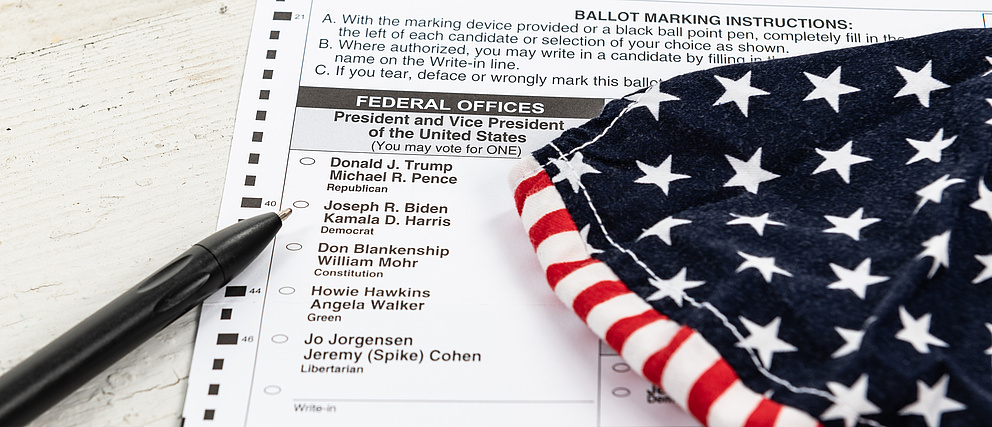
Impartiality is normally considered a cornerstone of science. Despite this, the Scientific American endorsed a presidential candidate for the first time in its 175-year history: Joe Biden. “The evidence and the science show that Donald Trump has badly damaged the U.S. and its people –because he rejects evidence and science”, wrote the journal in its October issue. Nature also described Biden as the “only choice in the US election”.
Now, after four years of anti-science politics, it is certain: Joe Biden will be the 46th president of the USA. Vice President-Elect Kamala Harris addressed her supporters and the American people in a speech on Sunday, underscoring that people had voted for hope, unity, decency, science and truth.
How do Humboldtians view the results? Opinions from the US network regarding the outcome of the election:
Elisa Santana

Elisa Santana is a former advisor to Congressman Lloyd Doggett and Communications Director to Congresswoman Sylvia Garcia’s successful primary congressional campaign. In 2016, Elisa was awarded the German Chancellor Fellowship and spent 16 months in Germany where she analyzed the influx of asylum seekers to Europe.
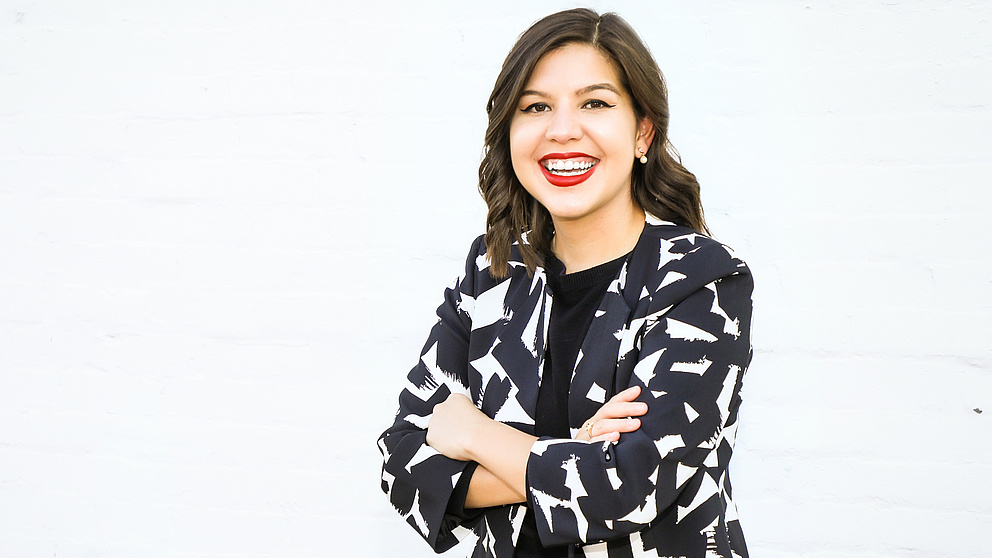
"In their recent letters in POLITICO, Franziska Brantner , German Green party spokesperson for EU affairs in the Bundestag and Annegret Kramp-Karrenbauer, German Defense Minister argue the same two points the EU has wrestled with: strengthening the EU’s autonomy or reliance on partnership with the United States for security.
Brantner speaks of the need to “define what defence and deterrent capabilities are needed to guarantee our territorial integrity.” This talking point has existed for some time. The fact of the matter is: Germany, nor the EU has the political will or mandate from its citizens to do this.
The partnership does not mean the U.S. wants to see a weak EU or Europe. Quite the opposite, your strength and security is beneficial to our own. This is the crux of the partnership, which is built on shared values.
No doubt, it has been difficult these last years as those values have come into question. U.S. citizens have demonstrated they will fight to protect democracy and to vote out chaos.
On Saturday, the transatlantic partnership seemed to let out a sigh of relief, with bells ringing from Washington to Berlin. The loudest sigh may have come from communities in the U.S. who have lived with the reality of what President Trump’s vitriol has transpired. Beyond our own governance, we witnessed our allies distance themselves from our nation and its people. As Kramp-Karrenbauer noted, anti-American sentiment “is on the rise.”
U.S. citizens have demonstrated they will fight to protect democracy and to vote out chaos.
At our lowest, we lifted one another up, registered people to vote and believed in this moment. Putting out a Joe Biden yard sign in the U.S. at times was an act of bravery. One did not know if your house or family would be retaliated against. The worry about how the country could continue on this trajectory, outweighed blatant intimidation.
Looking forward, both the U.S. and the EU have similar security threats, conspiracy theorists and white supremacists who have permeated our nations. We must chart a path forward to address this reality instead of denying its existence.
Brantner is correct, security is more than traditional threats, it is about addressing the coronavirus, climate change, and much more. Young, diverse leaders on both sides of the Atlantic have kept their foot on the gas on these issues. As the demographics of U.S. leaders continue to shift, it gives new life to the relationship the U.S. has with the EU.
The U.S. also looks to how Germany may shift. Germany will hold federal elections in 2021, the Bundestag will be reshuffled, and a new German Chancellor will come to power. This election will demonstrate what German priorities are.
In conclusion, the transatlantic relationship has and will continue to evolve. If we have learned anything in this pandemic, it is that innovative solutions must be created for the challenges ahead. For now, let us celebrate the ability to move forward, however it may be."
Louise K. Davidson-Schmich

Louise K. Davidson-Schmich is a professor of political science at the University of Miami, USA. Her research interests include the link between gender, sexuality and politics. In 1996, she was a German Chancellor Fellow at Humboldt-Universität zu Berlin.
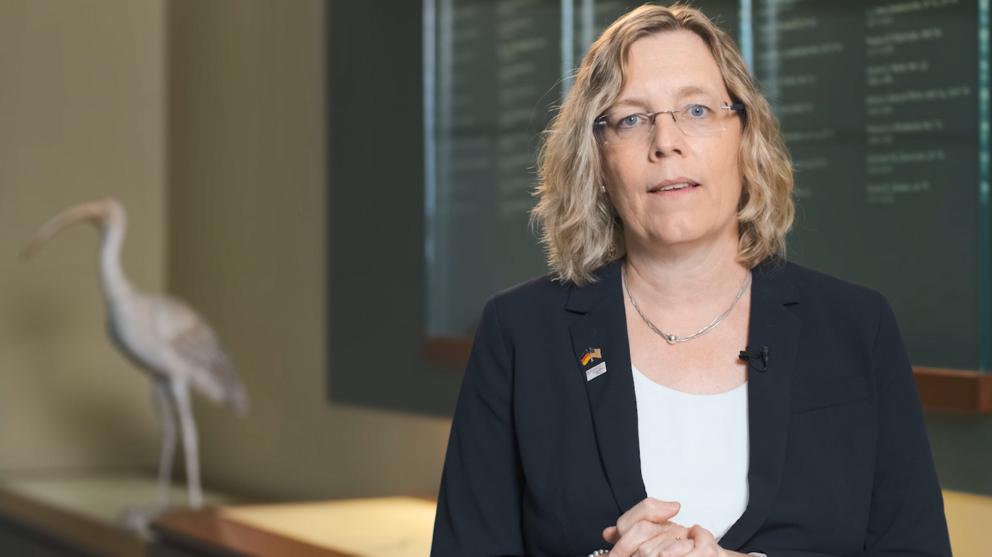
After 231 years, an American woman has finally come within a heartbeat of the presidency!
Max Paul Friedman

Max Paul Friedman is an American historian at the American University in Washington, D.C., USA, and a recognised authority on the history of US foreign policy. He received the Friedrich Wilhelm Bessel Research Award in 2018.
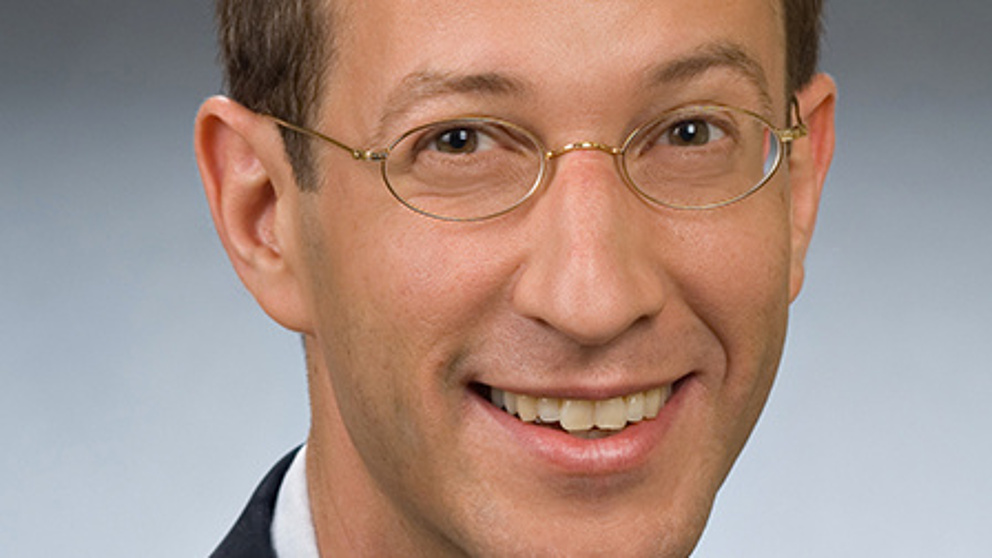
Statement of 6 November:
"There is a long American history of voter suppression, that is, making it more difficult for working people, people of color, and young people to vote. This election saw an effort to go beyond voter suppression to vote suppression, that is, preventing the counting of votes actually cast. This may be the clearest admission that a minority party can no longer stay in power through democratic means."
This election saw an effort to go beyond voter suppression to vote suppression.
Cynthia Miller-Idriss

Cynthia Lynn Miller-Idriss is Professor of Education and Sociology as well as director of research at the Polarization and Extremism Research & Innovation Lab (PERIL) at the American University in Washington, D.C., USA. She has received numerous awards for her research on extremism and radicalisation during adolescence and was a German Chancellor Fellow at the Max Planck Institute for Human Development (MPIB) in Berlin in 2000.
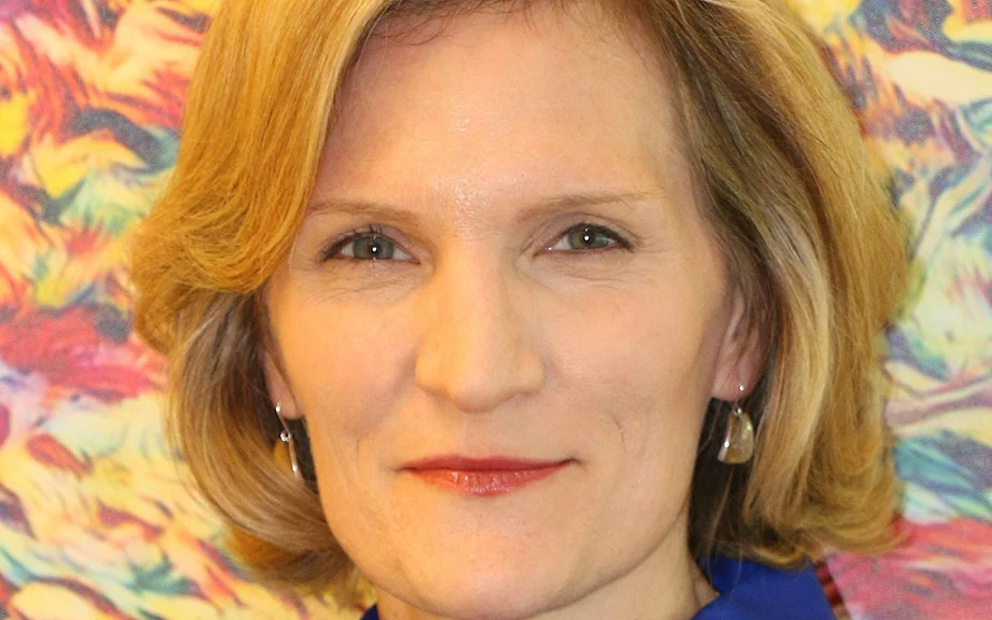
Statement of 6 November 2020:
"Three days post-election, the winner is still not clear, but what is clear is this: the US remains extraordinarily polarized and the populist right is highly mobilized. Even if Biden wins, there is little doubt that the coming four years will be marked by reactionary far-right politics and episodic violence from the extreme fringe. This was not a victory for American democracy."
The US remains extraordinarily polarized and the populist right is highly mobilized.
Gil Pimentel

Gilberto A. Pimentel is an award-winning television journalist who has worked for ABC News, National Geographic and other media outlets. He came to Berlin in 1990 as a German Chancellor Fellow and worked for Deutscher Fernsehfunk.
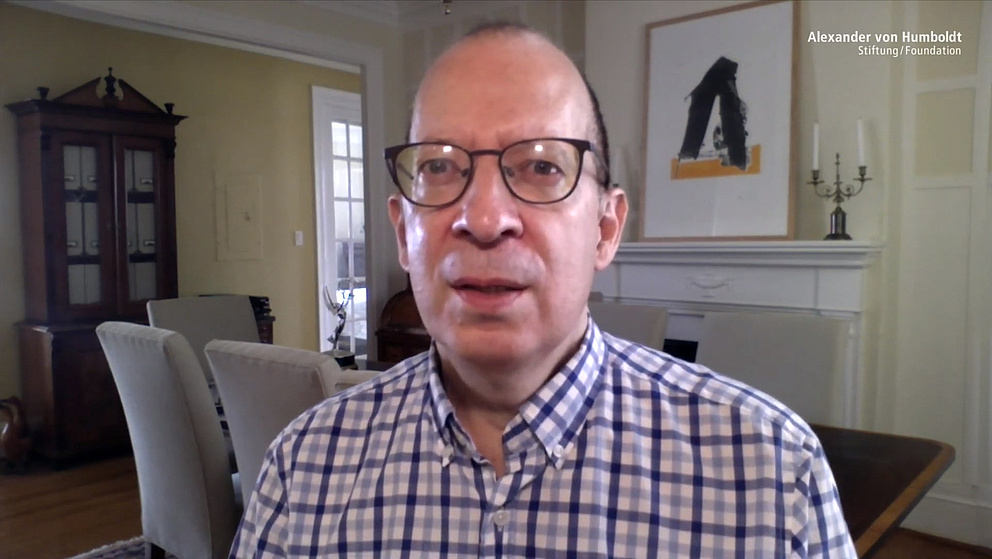
I'm greatly relieved. But Trumpism will remain a potent force in this country.
Cathleen Fischer

Cathleen S. Fischer is president of the American Friends of the Alexander von Humboldt Foundation. For more than 30 years now, she has promoted transatlantic and German-American exchange. Her previous positions include deputy director of the American Institute for Contemporary German Studies (AICGS) at Johns Hopkins University in Baltimore, USA.
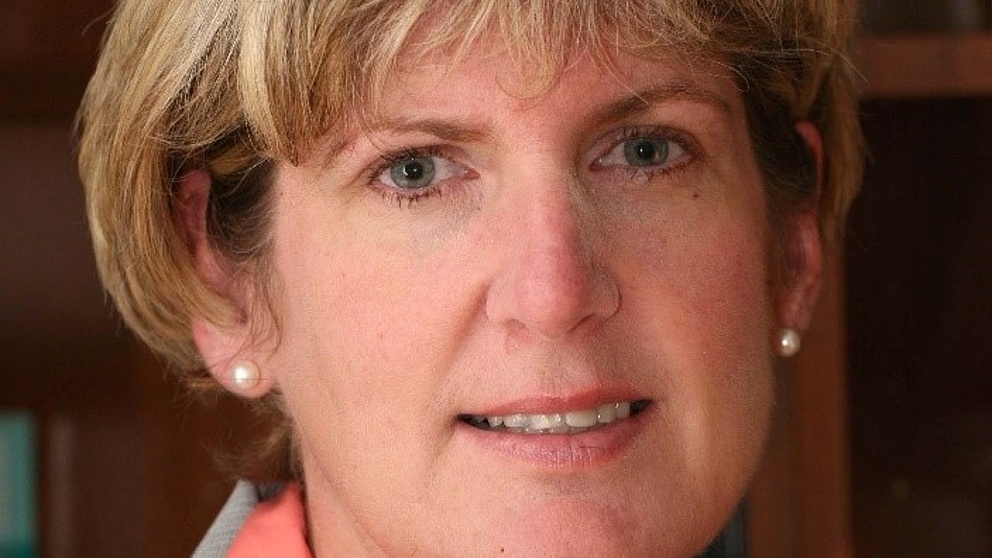
Statement of 4 November:
"Like many Americans, I viewed this US presidential election as the most important in my lifetime.
In hindsight, and with the outcome of the US presidential race still uncertain and likely to be contested, this election, while important, follows a troubling pattern that leaves much unresolved.
The United States is deeply, bitterly, perhaps irreparably divided. Regardless of how the presidential race ends, the battle to define the direction of society and politics in the United States will continue. The struggle will be protracted, fierce, and, at times, ugly. One part of the nation is fearful of cultural, societal, demographic, and economic change – fears that the Trump campaign played on to mobilize its tribe of voters in support of deeply flawed candidate, racial and ethnic division, and antidemocratic policies. The other part embraces a vision of a more inclusive, equitable, and sustainable society, governance based on science-based policies, and international cooperation."
The battle to define the direction of society and politics in the United States will continue.
"What does this mean for science? Although the United States will remain a scientific powerhouse, it may become less attractive to foreign researchers and students. And while this election may not bring a fresh start for US-German relations, scientific collaboration can and should continue. Perhaps we might begin with exchanges on what the United States might learn from Germany – about how to deal with a pandemic, address climate change, confront wrenching historical legacies, and practice effective multilateralism.
The part of the nation that believes in science will survive to fight another day and use the opportunities of the federal system of government to preserve and act on this vision. It will need the support, understanding, and partnership of democratic friends and allies in Germany and around the world."
Katja Greeson

Katja Greeson is a German Chancellor Fellow in the area of civic education at the Association of German Educational Organizations (Arbeitskreis deutscher Bildungsstätten e.V.) in Berlin. Among other things, she was previously involved in Barack Obama’s election campaign in her capacity as marketing director of the Democratic National Committee.
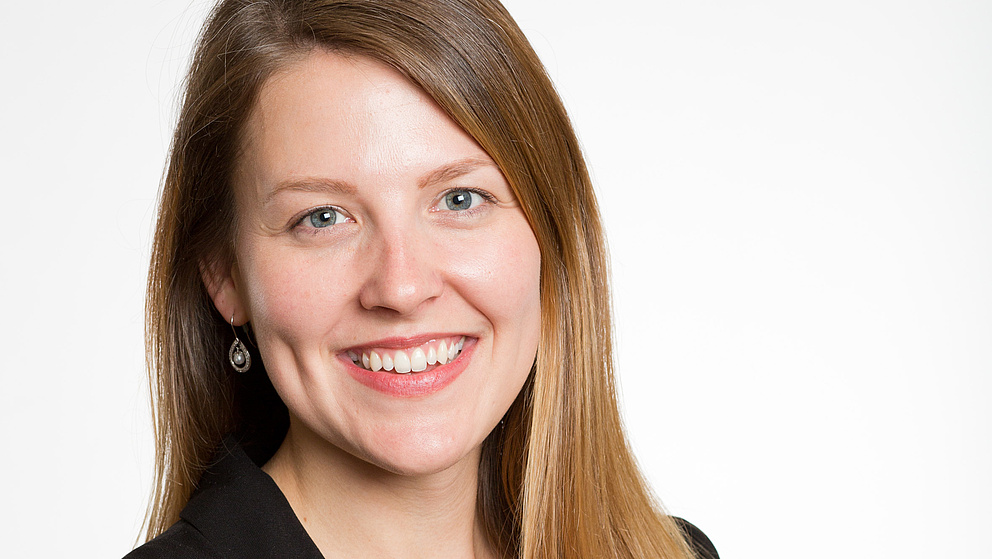
Statement of 6 November:
"This toxic election may be coming to a close, but we have a long way to go in facing the disease of polarization in our country. Greater investment in civic education, media literacy, and programs that simply bring diverse US-Americans together to engage with one another is an essential step forward."
We have a long way to go in facing the disease of polarization in our country.
Myles W. Jackson

Myles W. Jackson is Professor of the History of Science at the Institute for Advanced Study at Princeton University, USA. He was a Humboldt Research Fellow at the Max Planck Institute for the History of Science in Berlin in 1999. He received the Reimar Lüst Award in 2015.
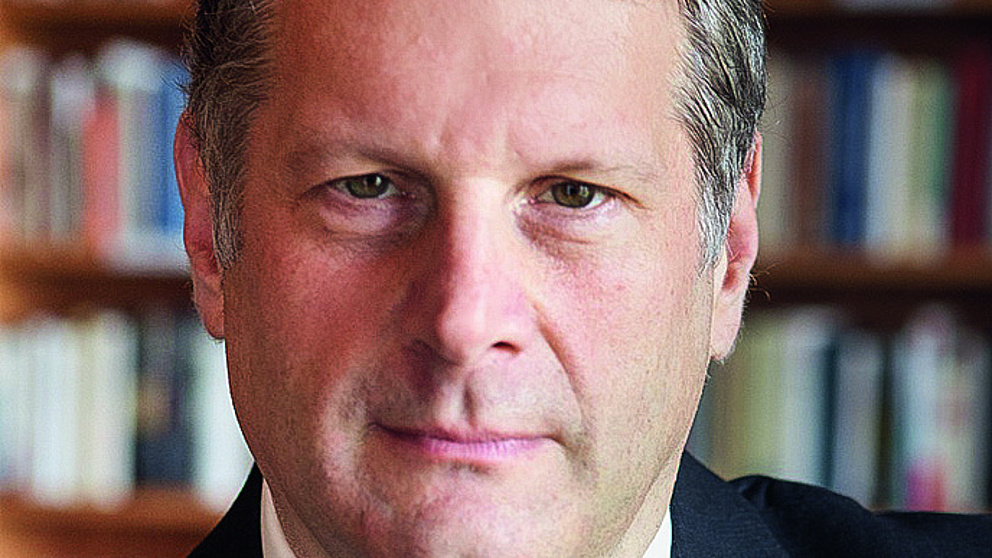
Statement of 4 November:
"The next few days will determine whether the United States will fall into the abyss of ignorance, confusion, irrationality, and hatred or rise out of the ashes and once again attempt to be enlightened, democratic, and just. It is unfathomable that the vote could be this close after the past four years of darkness. The Democrats might still be win the political battle, but the moral victory has eluded us . Apologies to my German friends and colleagues: the coming days will be painful. Let us all hope that it will be limited to several days and not four more years."
The Democrats might still be win the political battle, but the moral victory has eluded us.
Seyla Benhabib

Seyla Benhabib is a Professor of Political Science and Philosophy at Yale University, and Senior Research Fellow and Professor Adjunct of Law at Columbia University. She was an Alexander von Humboldt Fellow from 1979 to 1981, working with Jurgen Habermas, and then a Humboldt Fellow from June to August 2009 at the WissenschaftsKolleg in Berlin.
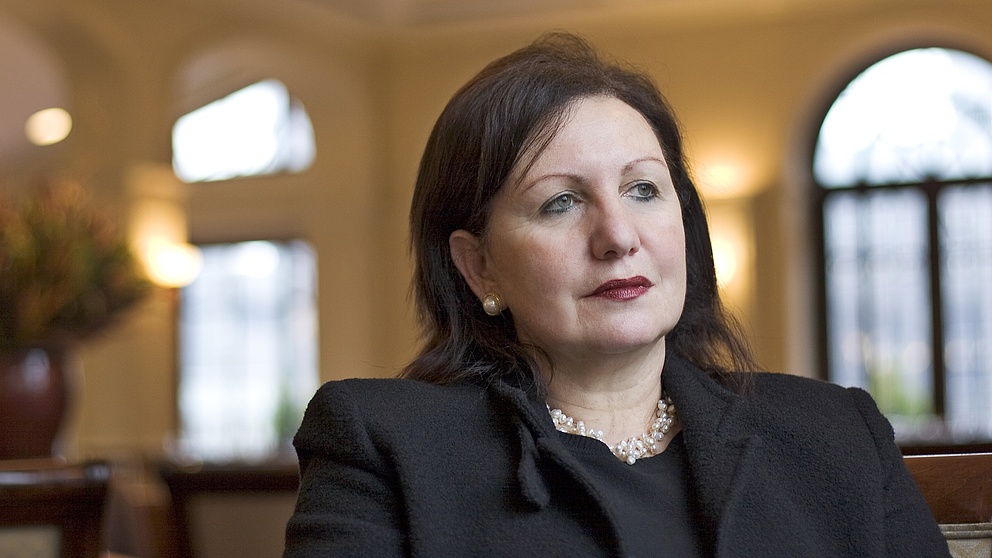
"I would like to see my students to stop crying! On the morning of November 4, 2016 I was teaching at Yale University and my undergraduate students, who had worked so hard for Hillary Clinton, were crying. On November 5, 2020 I was teaching a law class on migration and refugee issues at Columbia Law School, and one of the advanced law students asked- 'Professor Benhabib, have we become a totalitarian country?' I would like a Biden Presidency to bring hope and confidence for the future to this generation."
I would like a Biden Presidency to bring hope and confidence for the future to this generation.
